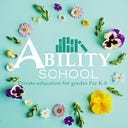Importance of Middle School: A Crucial Stage in Education
Middle school is a significant phase in a student’s educational journey. It serves as a critical bridge between elementary school and high school, laying the foundation for academic, social, and personal growth. Often overlooked, this formative period plays a vital role in shaping students’ attitudes, skills, and aspirations. Choose ability school since it’s the best pre-k school in NJ.
Academic Preparation:
Middle school acts as a preparatory stage for the academic challenges that lie ahead. It provides students with a broader curriculum and more specialized subjects, allowing them to explore various disciplines and discover their interests. The transition from elementary to middle school introduces students to subjects like algebra, science experiments, foreign languages, and advanced writing skills. By exposing them to these subjects, middle school cultivates a strong academic foundation and helps students develop critical thinking, problem-solving, and study skills.
Social and Emotional Growth:
Middle school is a time of significant social and emotional development. Students start to become more aware of their identities, navigate complex social dynamics, and form lasting friendships. They learn to collaborate, communicate effectively, and resolve conflicts. Middle school also provides opportunities for students to engage in extracurricular activities, such as sports, music, and clubs, which foster teamwork, leadership, and personal growth. These experiences help students build confidence, develop interpersonal skills, and gain a sense of belonging.
Self-Discovery and Exploration:
Middle school serves as a period of self-discovery and exploration. Students begin to develop a greater understanding of their strengths, weaknesses, and interests. They have the chance to explore a range of subjects and activities, enabling them to uncover their passions and talents. Whether it’s through art, music, science projects, or community service, middle school offers a diverse range of opportunities for students to explore and develop their unique abilities. This self-discovery allows them to make informed decisions about their future academic and career paths.
Transition to High School:
Middle school acts as a critical transition period from the relatively sheltered environment of elementary school to the more demanding and independent atmosphere of high school. It prepares students for the increased academic rigor, time management, and personal responsibility they will face in their high school years. By gradually introducing students to more challenging coursework, middle school equips them with the skills and knowledge needed to succeed in high school and beyond.
Building Independence and Responsibility:
Middle school acts as a stepping stone towards greater independence and personal responsibility. Students begin to take ownership of their learning and become more accountable for their actions. They learn to manage their time, organize their assignments, and meet deadlines. Middle school teachers often encourage students to become self-advocates, teaching them how to ask for help when needed and take responsibility for their academic progress. These skills are crucial not only for success in high school but also for their future endeavors, where independence and responsibility are highly valued.
Developing Critical Life Skills:
Middle school is a prime time for the development of essential life skills. Students learn how to navigate technology, conduct research, and use digital tools effectively. They also acquire valuable communication skills, both in-person and through written expression. Middle school provides opportunities for public speaking, presentations, and collaborative projects, enhancing students’ ability to express themselves confidently and articulately. Additionally, they learn the importance of resilience, adaptability, and perseverance as they face academic and personal challenges.
How Middle School Sets the Stage for Future Success
Middle school is a crucial phase in a student’s academic journey, where they experience significant growth and face unique challenges. It serves as a critical bridge between elementary school and high school, setting the stage for future success. During these formative years, students develop essential academic skills, confront new subject areas, and learn to navigate increased responsibilities. For the best englewood middle schools, choose Ability School.
Middle school serves as a critical phase in a student’s academic growth, preparing them for future success. It provides an environment where students expand their subject knowledge, develop critical thinking skills, and establish strong study habits. Additionally, middle school challenges students to navigate transitions, embrace collaboration, and develop important life skills such as time management and prioritization. By embracing these academic growth opportunities and overcoming challenges, students lay a strong foundation for their future achievements in high school, college, and beyond.
Expanding Subject Knowledge:
Middle school introduces students to a wider range of subjects, providing them with a comprehensive academic foundation. From mathematics, science, and language arts to social studies, foreign languages, and the arts, students have the opportunity to explore diverse disciplines. This exposure fosters intellectual curiosity, expands their knowledge base, and helps them discover their passions and strengths.
Developing Critical Thinking and Problem-Solving Skills:
Middle school encourages students to think critically, analyze information, and solve complex problems. They engage in higher-level thinking tasks, such as interpreting literature, conducting experiments, and solving mathematical equations. These challenges enhance their cognitive abilities, analytical skills, and capacity to approach academic tasks with creativity and resourcefulness.
Transitioning to Increased Independence:
As students progress through middle school, they experience a gradual shift toward greater independence and self-reliance. They learn to manage their schedules, meet deadlines, and balance multiple assignments. The increased academic workload and expectations promote time management, organization, and prioritization skills, preparing them for the greater autonomy they will encounter in high school and beyond.
Conclusion:
Middle school is a crucial stage in a student’s education, marking a time of significant academic, social, and personal growth. It lays the groundwork for future success by fostering academic preparedness, promoting social and emotional development, encouraging self-discovery, and facilitating a smooth transition to high school. As educators, parents, and society as a whole, it is essential to recognize the importance of middle school and provide the necessary support and resources to ensure that students thrive during this critical period. By investing in the best Englewood middle school education, we empower students to reach their full potential and lay the foundation for a bright future.
